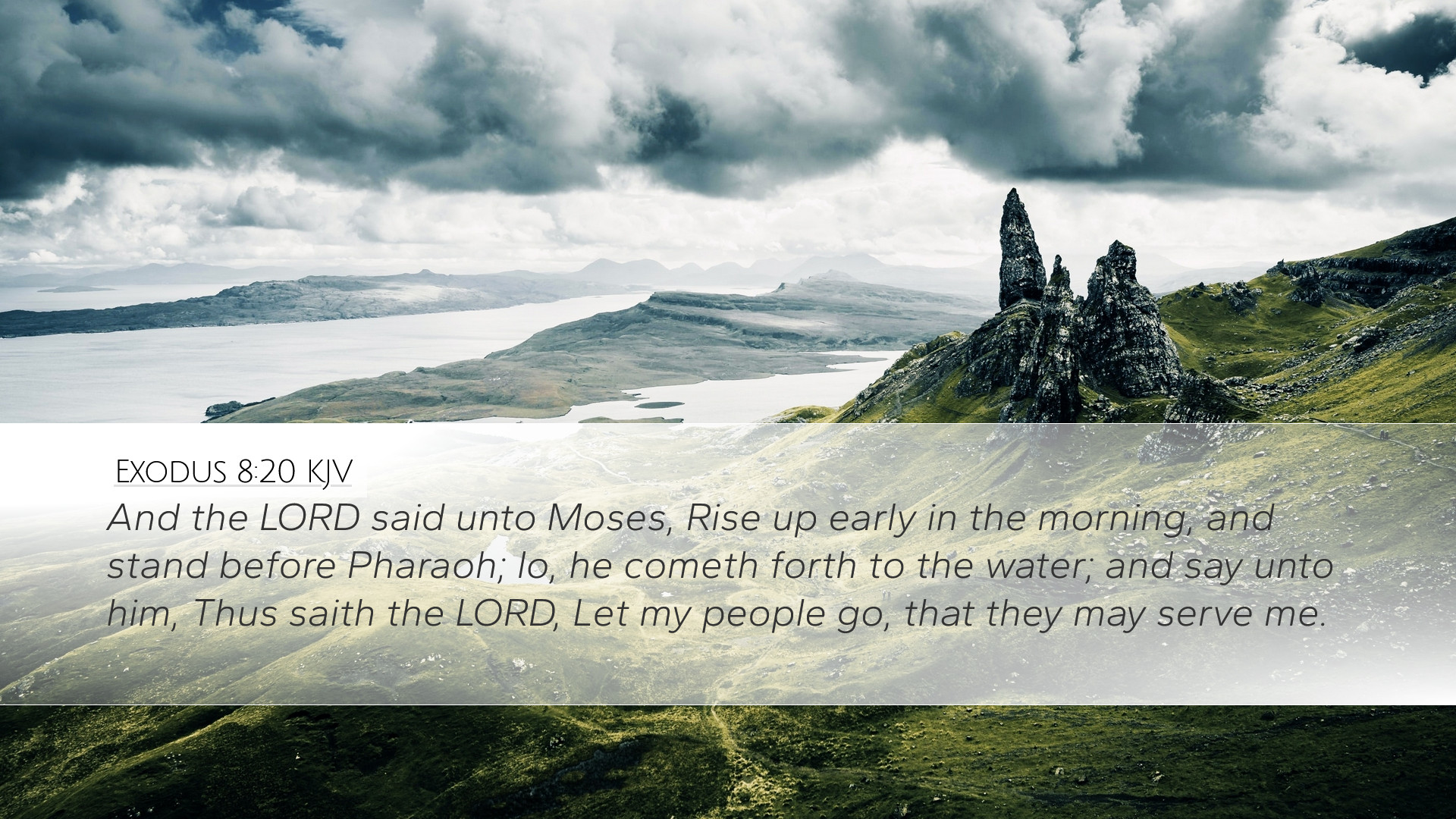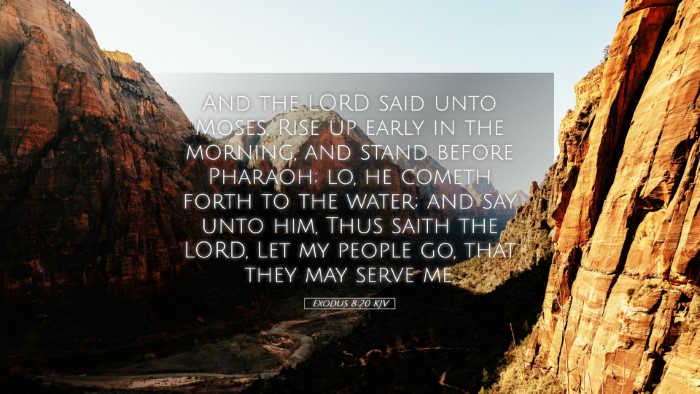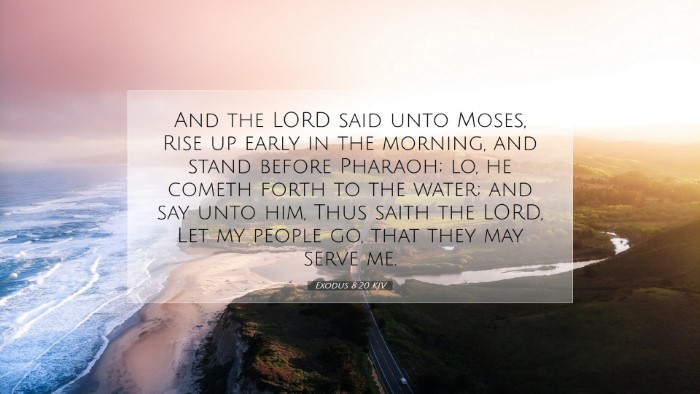Commentary on Exodus 8:20
Verse: "And the LORD said unto Moses, Rise up early in the morning and stand before Pharaoh; lo, he cometh forth to the water; and say unto him, Thus saith the LORD, Let my people go, that they may serve me."
Contextual Overview
Exodus 8:20 falls within the narrative of Moses' encounters with Pharaoh, which is part of the larger story of the Israelites' oppression in Egypt and their call to liberation. This verse specifically introduces the fifth plague that God is about to inflict upon Egypt—an event that underscores the ongoing conflict between divine authority and earthly power.
Expository Insights
Divine Instruction: The command given to Moses to rise early demonstrates the urgency and significance of the task at hand. God’s instruction emphasizes preparation and diligence, suggesting that God's work is both intentional and systematic.
Pharaoh's Weakness: Pharaoh is described as coming forth to the water, indicating not only a habitual action but also a symbolic act of reliance on the Nile, a lifeline for Egypt. This imagery highlights the contrast between God's sovereignty and Pharaoh's status, reinforcing that Pharaoh is about to confront a power greater than his own.
Theological Reflections
God's Sovereignty: This verse reinforces the theme of divine sovereignty as God directly dictates the narrative of Israel's liberation. It serves as a reminder to faith leaders that while worldly authorities may seem formidable, they ultimately exist under God's authority.
Call to Serve: The phrase "Let my people go, that they may serve me" underscores the purpose of liberation. The Israelites are not just to be freed from slavery; they are to serve God, indicating that true freedom involves a commitment to divine purpose.
Commentary Excerpts
Matthew Henry
Matthew Henry notes that this message to Pharaoh signifies God's demand for obedience and the divine nature of Israel's calling. He emphasizes the gravity of the command given to Moses, pointing out that his role is both a servant to God and a messenger to Pharaoh, which serves as a pivotal moment in the narrative.
Albert Barnes
Albert Barnes commentary elaborates on Pharaoh’s habitual actions, stating that the river represents both life and a false sense of security. Barnes points out that Pharaoh's defiance results in judgment, and this confrontation is significant in demonstrating that the God of Israel is the true God, above all Egyptian deities.
Adam Clarke
Adam Clarke draws attention to the significance of the early morning visit. He interprets the timing as an act of divine instruction, allowing Pharaoh a direct encounter with the message of God. Clarke emphasizes the importance of dialogue in God’s revelations and how this interaction exemplifies God's mercy and justice.
Applications for Pastors and Theologians
- Preparation and Diligence: Pastors can take the lesson of preparing early and diligently for God’s work in their lives and ministries.
- Understanding Authority: This passage serves as a reminder that regardless of worldly authority, God's message must be proclaimed boldly.
- Purpose of Freedom: The liberation of the Israelites presents a paradigm for understanding the calls to serve God post-deliverance; freedom is rooted in service, not mere release from bondage.
- Engagement with Culture: Observing Pharaoh’s actions reveals the need for engaging with the surrounding culture in a way that establishes God’s truth and authority.
Conclusion
Exodus 8:20 serves as a pivotal moment in the story of the Exodus, encapsulating themes of preparedness, the sovereignty of God, and the call to serve. By reflecting on the insights from the public domain commentaries, pastors, students, and theologians can find profound meanings applicable to their contexts—encouraging them to boldly proclaim God's words and live out their calling in service to Him.


